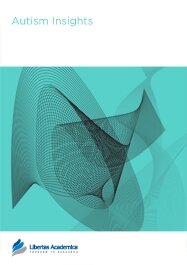

Publication Date: 15 Dec 2010
Type: Review
Journal: Autism Insights
Citation: Autism Insights 2010:2 39-53
doi: 10.4137/AUI.S6275

There is a considerable body of experimental evidence suggesting potential efficacy of a diet devoid of gluten and casein in ameliorating some of the core and peripheral symptoms of autism spectrum conditions. Although phenotypic details of best- and non-responders to dietary change remain under investigation, the range of biological mechanisms implicated during intervention is growing. The question of how diet works remains unanswered. We discuss three prospective modes of action used alone and in combination to explain the effects of a gluten- and casein-free diet on autism spectrum conditions focussed on direct or co-morbid consequences of: i) gluten sensitive enteropathy or coeliac disease, ii) food allergy and/or atopic disease, and iii) underlying hyperpermeability of the gastrointestinal tract (leaky gut) and subsequent passage of biologically-active peptide and related species into the central nervous system. No single theory offers a universal explanation for the biological basis of dietary effectiveness despite individual associations with various cases of autism. Impaired intestinal barrier function is a common denominator and represents a promising area for investigation. Furthermore, a number of key points derived from each model offer testable markers for experimental evaluation onwards to ascertaining potential responsiveness to such dietary intervention in autism.
PDF (632.33 KB PDF FORMAT)
RIS citation (ENDNOTE, REFERENCE MANAGER, PROCITE, REFWORKS)
BibTex citation (BIBDESK, LATEX)


As an open access journal with an international audience, Air, Soil and Water Research has a tremendous worldwide impact. Peer reviewing process is essential to maintain the high standard of quality of published papers, and I have thoroughly enjoyed my participation as a reviewer for Air, Soil and Water Research. The online review system is very easy and simply to use. I am looking forward to peer reviewing additional articles in the future. ...
Facebook Google+ Twitter
Pinterest Tumblr YouTube